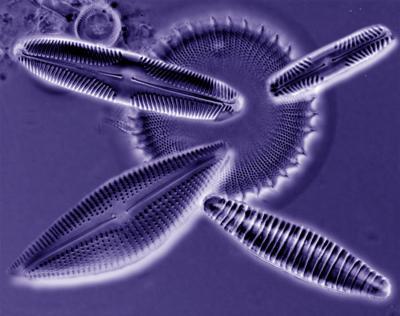Please note: The Academy will close at 3 pm today for Big Bang Gala.
Science News
Biodiversity in Streams
April 7, 2011

A study, published in Nature this week, highlights not only why biodiversity is important but shows exactly how it works.
It is known that biologically diverse streams are better at cleaning up pollutants than less rich waterways, so Bradley Cardinale of the University of Michigan created 150 miniature model streams to find out why this is.
The model streams use recirculating water in flumes to mimic the variety of flow conditions found in natural streams. Cardinale grew between one and eight species of algae in each of the mini-streams, then measured each algae community's ability to soak up nitrate, a nitrogen compound that is a nutrient pollutant of global concern. He found that nitrate uptake increased linearly with species richness. On average, the eight-species mix removed nitrate 4.5 times faster than a single species of algae grown alone.
The reason? Niche partitioning, Cardinale said.
In the stream experiments, each algae species was best adapted to a particular habitat in the stream and gravitated to that location—its unique ecological niche. As more algae species were added, more of the available habitats were used, and the stream became a bigger, more absorbent sponge for nitrate uptake and storage.
Sound familiar? Think Charles Darwin. “People as far back as Darwin have argued that species should have unique niches and, as a result, we should see a division of labor in the environment,” Cardinale said.
This is exciting news because nitrate is an ingredient in many fertilizers and is found in surface runoff from agricultural land that makes its way into streams, lakes and coastal zones. It is a leading cause of degraded water quality worldwide.
“The primary implication of this paper is that naturally diverse habitats are pretty good at cleaning up the pollutants we dump into the environment, and loss of biodiversity through species extinctions could be compromising the ability of the planet to clean up after us,” according to Cardinale.
Image credit: Danuta Bennett